The Standing Committee of the twelfth National People’s Congress on Monday adopted the interpretation of Article 104 of the Basic Law of the Hong Kong Special Administrative Region of the People’s Republic of China at its twenty-fourth Session. Below is the full text in English:

The Standing Committee of the Twelfth National people’s Congress examined at its Twenty-fourth Session the motion regarding the request for examination of the Draft Interpretation of Article 104 of the Basic Law of the Hong Kong Special Administrative Region of the People’s Republic of China submitted by the Council of Chairmen. Having consulted the Committee for the Basic Law of the Hong Kong Special Administrative Region under the Standing Committee of the National People’s Congress, the Standing Committee of the National People’s Congress has decided to make, under the provisions of Article 67(4) of the Constitution of the People’s Republic of China and Article 158(1) of the Basic Law of the Hong Kong Special Administrative Region of the People’s Republic of China, an interpretation of the provisions of Article 104 of the Basic Law of the Hong Kong Special Administrative Region of the People’s Republic of China regarding “When assuming office, the Chief Executive, principal officials, members of the Executive Council and of the Legislative Council, judges of the courts at all levels and other members of the judiciary in the Hong Kong Special Administrative Region must, in accordance with law, swear to uphold the Basic Law of the Hong Kong Special Administrative Region of the People’s Republic of China and swear allegiance to the Hong Kong Special Administrative Region of the People’s Republic of China” as follows:
1. “To uphold the Basic Law of the Hong Kong Special Administrative Region of the People’s Republic of China” and to bear “allegiance to the Hong Kong Special Administrative Region of the People’s Republic of China” as stipulated in Article 104 of the Basic Law of the Hong Kong Special Administrative Region of the People’s Republic of China, are not only the legal content which must be included in the oath prescribed by the Article, but also the legal requirements and preconditions for standing for election in respect of or taking up the public office specified in the Article.
2. The provisions in Article 104 of the Basic Law of the Hong Kong Special Administrative Region of the People’s Republic of China that “When assuming office”, the relevant public officers “must, in accordance with law, swear” bear the following meaning:
(1) Oath taking is the legal prerequisite and required procedure for public officers specified in the Article to assume office. No public office shall be assumed, no corresponding powers and functions shall be exercised, and no corresponding entitlements shall be enjoyed by anyone who fails to lawfully and validly take the oath or who declines to take the oath.
(2) Oath taking must comply with the legal requirements in respect of its form and content. An oath taker must take the oath sincerely and solemnly, and must accurately, completely and solemnly read out the oath prescribed by law, the content of which includes “will uphold the Basic Law of the Hong Kong Special Administrative Region of the People’s Republic of China, bear allegiance to the Hong Kong Special Administrative Region of the People’s Republic of China”.
(3) An oath taker is disqualified forthwith from assuming the public office specified in the Article if he or she declines to take the oath. An oath taker who intentionally reads out words which do not accord with the wording of the oath prescribed by law, or takes the oath in a manner which is not sincere or not solemn, shall be treated as declining to take the oath. The oath so taken is invalid and the oath taker is disqualified forthwith from assuming the public office specified in the Article.
(4) The oath must be taken before the person authorized by law to administer the oath. The person administering the oath has the duty to ensure that the oath is taken in a lawful manner. He or she shall determine that an oath taken in compliance with this Interpretation and the requirements under the laws of the Hong Kong Special Administrative Region is valid, and that an oath which is not taken in compliance with this Interpretation and the requirements under the laws of the Hong Kong Special Administrative Region is invalid. If the oath taken is determined as invalid, no arrangement shall be made for retaking the oath.
3. The taking of the oath stipulated by Article 104 of the Basic Law of the Hong Kong Special Administrative Region of the People’s Republic of China is a legal pledge made by the public officers specified in the Article to the People’s Republic of China and its Hong Kong Special Administrative Region, and is legally binding. The oath taker must sincerely believe in and strictly abide by the relevant oath prescribed by law. An oath taker who makes a false oath, or, who, after taking the oath, engages in conduct in breach of the oath, shall bear legal responsibility in accordance with law.
This Interpretation is hereby announced.
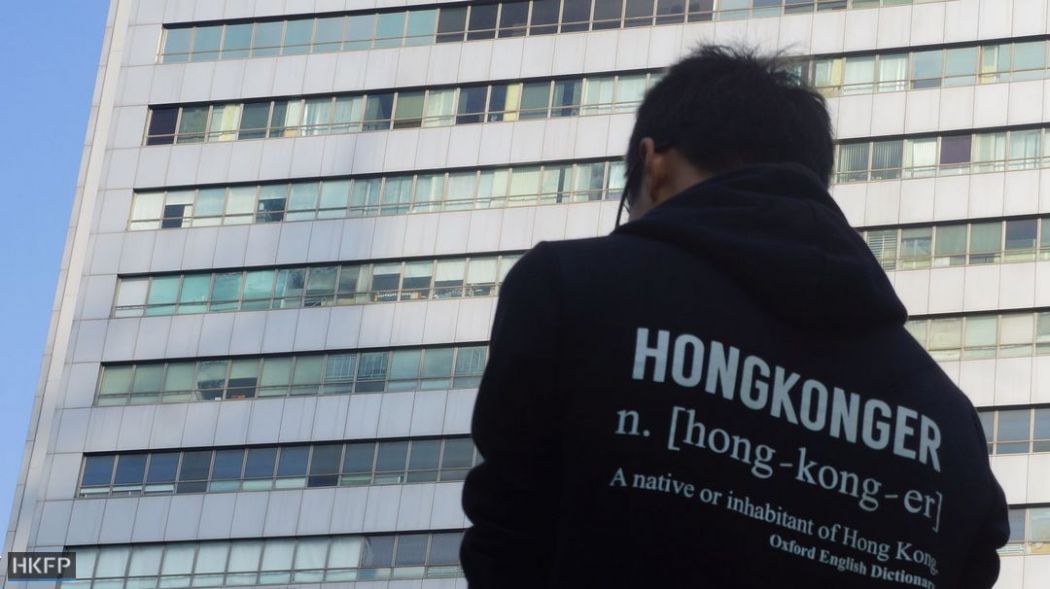

Timeline: What has happened so far.
Oct 11: The government says that lawmakers who decline or neglect to take their oath will be disqualified in accordance with Section 21 of the Oaths and Declarations Ordinance.
Oct 12: Youngspiration’s Yau Wai-ching and Baggio Leung Chung-hang take their oaths at the Legislative Council, referring to China as “Chee-na,” which some consider offensive. The Legislative Council Secretariat rejects the duo’s oaths.
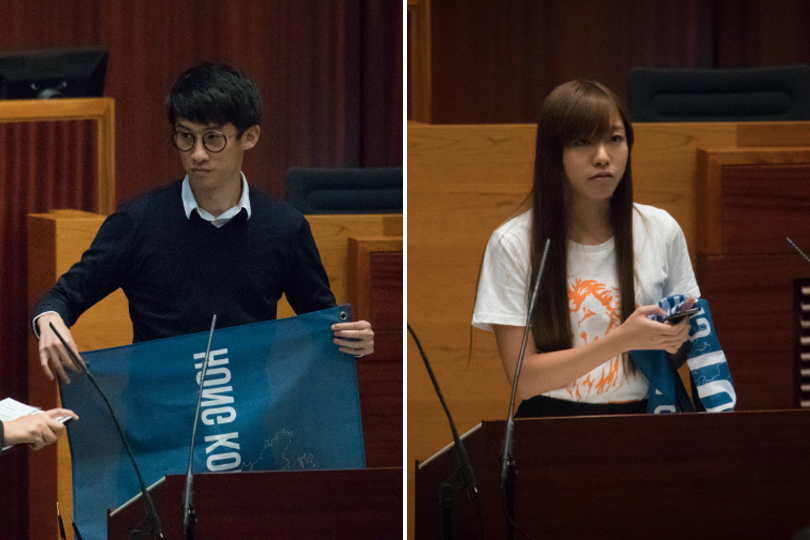
Oct 18: Legislative Council President Andrew Leung invites lawmakers whose oaths were rejected to make a written request to re-take their pledges.
Oct 18: The Youngspiration lawmakers request to re-take their oaths.
Oct 18: Chief Executive Leung Chun-ying and the Department of Justice file an emergency judicial review against Andrew Leung’s decision to allow them to re-take the oath. They also request an interim injunction to bar Leung from administering the oath. The court grants leave for the judicial review but refuses to issue an interim injunction.
Oct 18: Andrew Leung objects to the government’s interference in the oath row.

Oct 19: Pro-Beijing lawmakers stage a walkout to prevent Yau and Leung from being sworn-in.
Oct 25: Andrew Leung decides to defer the re-taking of oaths by the Youngspiration lawmakers until the government’s judicial review challenge is concluded.
Oct 26: The pro-democracy camp demands Andrew Leung step down after he backtracked on his position on the oath controversy.
Nov 3: The High Court begins hearing the judicial review challenge.

Nov 3: Beijing notifies the Hong Kong government that it will discuss handing down an interpretation of Article 104 of the Basic Law at the Standing Committee of the National People’s Congress (NPCSC) meeting.
Nov 7: Beijing’s interpretation is expected.
Nov 8: Hong Kong’s lawyers to hold a silent march in protest of Beijing’s decision. This is the fourth silent march organised by the legal sector since the 1997 handover.
What provision in the Basic Law is in question?
Beijing will be discussing whether to interpret Article 104 of the Basic Law.
The provision stipulates: “When assuming office, the Chief Executive, principal officials, members of the Executive Council and of the Legislative Council, judges of the courts at all levels and other members of the judiciary in the Hong Kong Special Administrative Region must, in accordance with law, swear to uphold the Basic Law of the Hong Kong Special Administrative Region of the People’s Republic of China and swear allegiance to the Hong Kong Special Administrative Region of the People’s Republic of China.”
HKU law professor Johannes Chan and legal sector lawmaker Dennis Kwok have said that Article 104 is clearly written and has little room for interpretation.
Some argue that Beijing’s interpretation of Article 104 will also affect the chief executive, principal officials, judges and other members of the judiciary. In other words, judges can also be disqualified if they do not swear allegiance to Hong Kong properly.
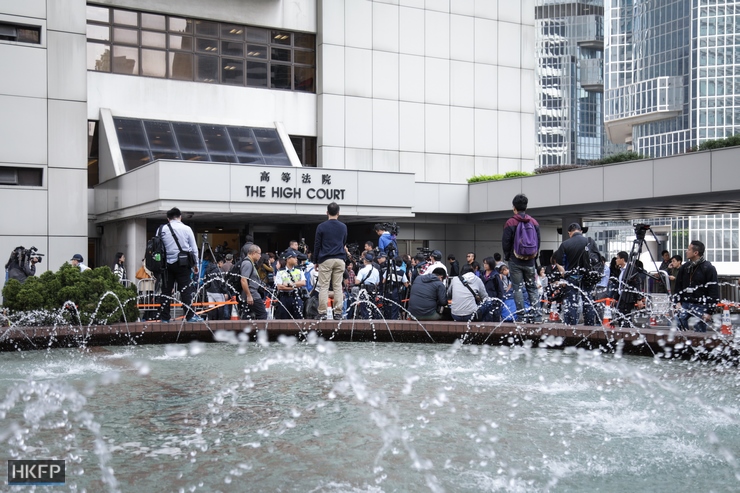
What is an interpretation of the Basic Law?
Article 158(1) of the Basic Law confers the power of interpreting Hong Kong’s mini-constitution on China’s top legislative body, the Standing Committee of the National People’s Congress (NPCSC). In other words, the NPCSC’s opinions are final and binding.
An NPCSC interpretation – which has happened on four occasions since the 1997 handover – is always controversial owing to the public perception that Beijing is undermining Hong Kong’s judicial independence.

What is the scope of Beijing’s interpretive power and when can they intervene?
Hong Kong’s judiciary has debated the scope of the NPCSC’s interpretive power. In Ng Ka Ling v. Director of Immigration in 1999, the Court of Final Appeal – Hong Kong’s final appellate court – took a strong stance in defending judicial autonomy.
But the Court issued a clarification at the government’s request a month later, saying that it “accepts that it cannot question [the] authority” of the NPCSC. It did, however, subtly add that the authority pertains to acts that are in accordance with the Basic Law and the procedure stated in the mini-constitution.
Almost a year later, in Lau Kong Yung v. Director of Immigration, the Court of Final Appeal acknowledged that the NPCSC’s power under Article 158(1) is “in general and unqualified terms,” meaning that it can interpret the Basic Law at anytime.
The Court also quoted legal scholar Yash Ghai, who wrote that Beijing’s interpretive power is “plenary in that it covers all the provisions of the Basic Law” and that it “may be exercised in the absence of litigation.” The Court did not reject this analysis.
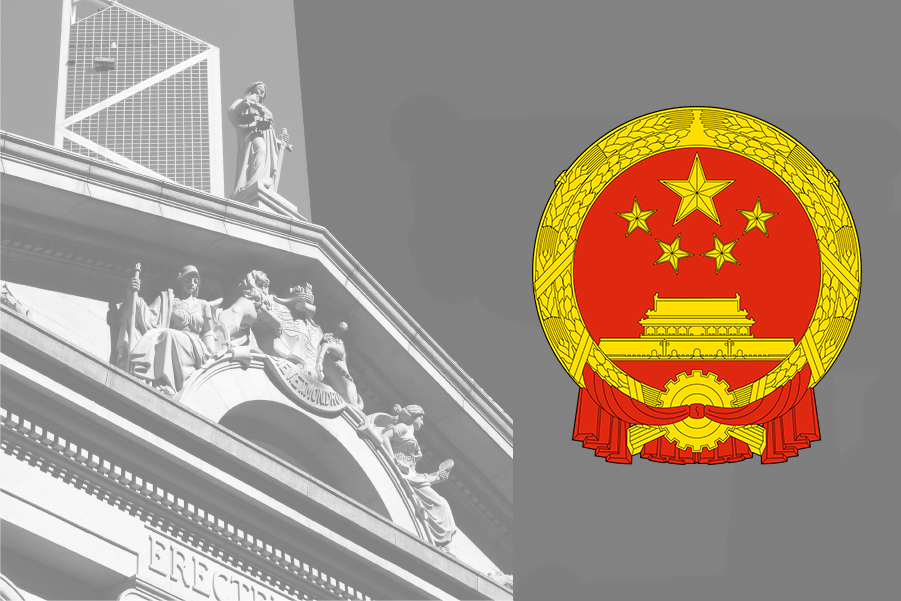
Is there any precedent for Beijing interpreting the Basic Law?
There have been four NPCSC interpretations since the 1997 handover.
The first interpretation took place in 1999, in the case of Ng Ka Ling v. Director of Immigration. The Hong Kong government asked Beijing to interpret Article 24 of the Basic Law after the Court of Final Appeal handed down a ruling entitling all Chinese citizens with Hong Kong parents to the right of abode.
The government made the request again in 2005, regarding the term of office of chief executives when replacing predecessors who vacate office before their terms expire.
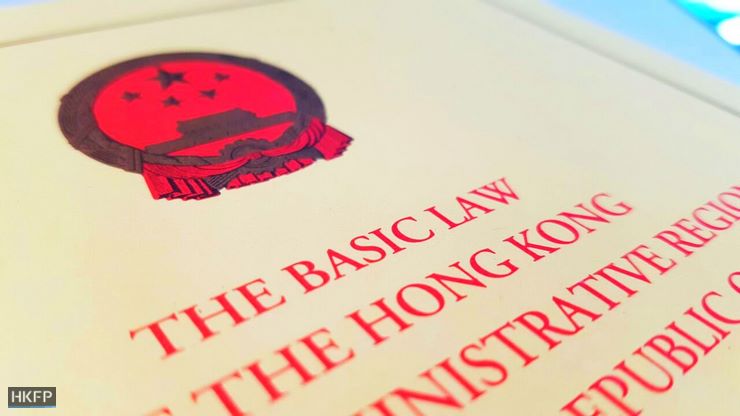
The NPCSC has interpreted the Basic Law on its own initiative once. The interpretation, issued in 2004, concerned the election procedure for choosing the chief executive.
In 2011, the Court of Final Appeal referred the case of Democratic Republic of the Congo v. FG Hemisphere to the NPCSC over the issue of state immunity.
All of the interpretations sparked controversy in Hong Kong society. The legal profession in the territory held two silent marches in protest of the 1999 and 2005 interpretations.
